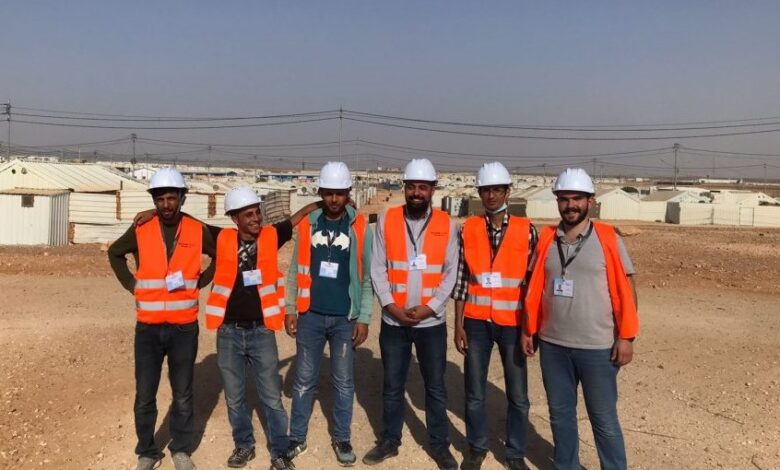
Artificial intelligence is quietly reshaping the future of humanitarian action, not by flashy breakthroughs or dramatic headlines, but through steady, practical innovation that reaches those most in need. From classrooms in remote villages to clinics in bustling cities, AI is helping to bridge critical gaps in education, healthcare, and economic opportunity. But its most profound impact may be in sectors where the absence of progress is felt most acutely, like energy access, where AI is unlocking solutions for millions left in the dark.
Energy is the invisible thread that weaves together modern life, yet for millions around the world, reliable power remains out of reach. In displacement camps, informal settlements, and rural communities, energy poverty is a daily reality that stifles education and endangers health. Traditional grid expansion is often too slow or impractical for these populations, leaving them trapped in cycles of vulnerability and uncertainty. Here, AI is stepping in, not as a silver bullet, but as a critical enabler, powering microgrids in Africa, optimising smart metres in American neighbourhoods, and giving communities across South Asia the tools needed to manage their own energy futures.
At NeuroTech, we come face to face with the devastating impacts of energy poverty and instability almost every day, as we work to develop effective and innovative solutions that can unleash the power of AI and digitalisation to transform access in underserved regions of the world. The Middle East has often been – and continues to be – highly-affected by this struggle, as many host communities and informal settlements struggle with energy insecurity, while high electricity costs, unstable infrastructure, and limited awareness of energy conservation deepen the challenge. Unsurprisingly, such issues disproportionately affect vulnerable groups, particularly women-headed households, informal tenants, and those living in climate-exposed areas.
But what if technology could help every at-risk household not only understand but also control their energy consumption, thus ensuring greater predictability and affordability of supply? This was the question that sparked our efforts and fuelled the creation of our flagship solution: an AI-powered smart energy management system tailored to the realities of these communities. At the core of this system is a smart energy controller, connected to household metres and appliances, which uses AI algorithms to track, forecast, and optimise electricity use in real time.
What sets our solution apart is its accessibility and adaptability. Recognising that many users have limited digital literacy, the system is supported by an intuitive mobile app featuring real-time consumption dashboards, personalised energy-saving advice, and gamified challenges that encourage behaviour change. The app’s design is deliberately simple, ensuring that even those unfamiliar with technology can engage meaningfully. Moreover, the system’s hybrid connectivity model allows it to function in areas with poor or intermittent internet access; data is stored locally and synced when connectivity is restored, making the solution resilient in low-resource settings.
The impact of NeuroTech’s deployment in the Middle East, and specifically northern Jordan, has been both measurable and meaningful. In one recent project, the system reached more than 2,500 people and households using the smart controller and reported savings of up to 18% on their monthly electricity bills – a significant relief for families living on the edge. Perhaps more telling, 75% of users accessed the mobile app within the first week, demonstrating a strong appetite for tools that put control back in their hands. The system’s use of behavioural nudges – like gamification and community challenges – has fostered lasting changes in energy-saving habits, proving that AI can do more than process data; it can inspire new ways of living.
When AI is designed with communities at the centre, it can transform energy from a source of scarcity into a driver of empowerment. But the challenge remains immense. The global need for reliable, affordable energy – especially in regions affected by conflict or disaster – far exceeds the reach of current efforts. Scaling solutions like NeuroTech’s will require more than technical innovation; it will demand increased investment, stronger partnerships, and a commitment to building trust with the communities being served.
This is where recognition and support from the wider international community becomes invaluable, as can be seen with our own experience winning the Zayed Sustainability Prize. In 2023, NeuroTech was recognised by the Zayed Sustainability Prize – a pioneering award created by the UAE to showcase and support the world’s most impactful innovations and projects in the areas of health, food, energy, water and climate action. The Prize fund, and international recognition, not only validated our company’s approach but also amplified our impact, helping us scale our operations, attract new partners, and inspire confidence among users.
Our success, and the Prize’s focus on enabling grassroots innovation, is a clear example that impactful innovation does not need to be complex or flashy – it needs to be functional, fair, and rooted in the communities it serves. Today, the need for scalable, community-centred energy projects has never been greater, especially in the face of growing challenges like climate change, conflict, and displacement. But with the ingenuity and determination of young innovators worldwide, we have every reason to believe that meaningful solutions are within reach.





